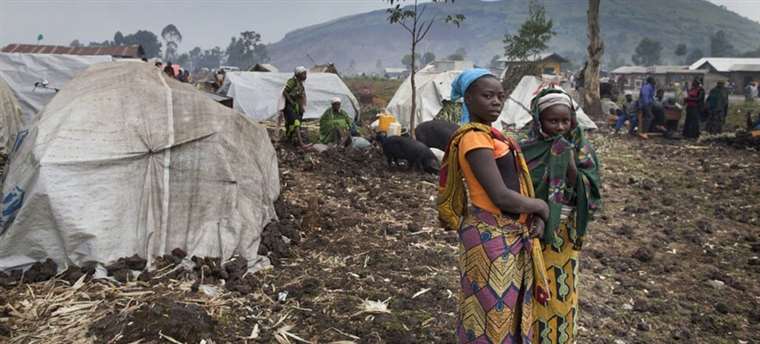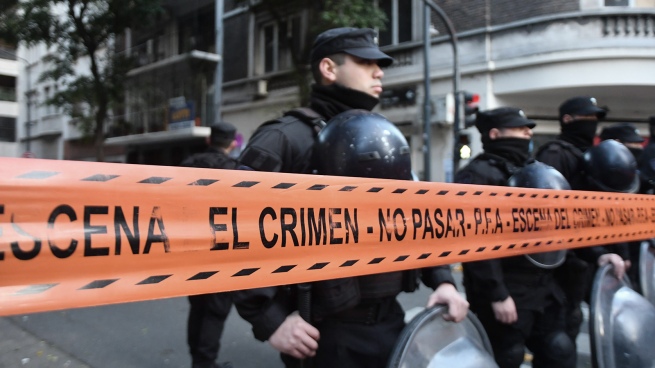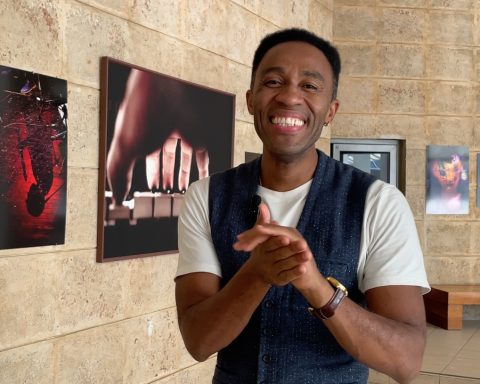September 12, 2022, 15:07 PM
September 12, 2022, 15:07 PM
Fighting between the army of the Democratic Republic of the Congo (DRC) and irregular forces in the east of the country left Nearly 100 dead and more than 24,000 people displaced for a monthreported the United Nations Office for the Coordination of Humanitarian Affairs (Ocha).
In just three days, from September 2 to 5, the clashes in the northeastern province of Ituri caused 83 deaths and 19,000 people had to flee from their homes in areas around the city of Mambasa, more than 100 kilometers from the eastern border with neighboring Uganda.
Another armed clash, on August 30 and 31 in the town of Mongbwalu, a little further north, left at least 14 civilians killed and some 4,000 people forced to flee their homes.
Between February and April, 274 civilians perished and some 200,000 people had to be displaced from their homes because of the violence. And between May and July, more than 1,600 looting, rape and other abuses of civilian communities by armed combatants were reported, Ocha said.
Their reports indicate that 129 health structures were destroyed or damaged in Ituri between 2019 and June 2022 due to violence, and 137 incidents directly affected humanitarian workers.
Ituri, a territory of 65,6600 square kilometers and 4.2 million inhabitants, suffers from the violence unleashed by the rebels Allied Democratic Forces, formed with groups that claim to be Islamistemerged in neighboring Uganda and operate both in that province and in the North Kivu border.
The clashes this September cut off the possibility of bringing humanitarian assistance to 120,000 people in the Mambasa area alone, said the Eight.
In North Kivu and throughout eastern DRC Dozens of armed irregular groups act, among which the March 23 Movement has resurfaced with virulence, started with deserters from the regular army.
irregular forces have exploited in their favor old rivalries between ethnic groups in the region, for example between the Lendu peoples, mainly farmers, and Hema, mainly dedicated to herding.
Faced with the escalation of violence, the president of the DRC, Felix Tshisekedi, approved the deployment of a regional military force in the east of the country to fight irregular armed groups.
The constitution of the regional force was agreed by the governments of the DRC, Rwanda, Uganda, Kenya, Tanzania, Burundi and South Sudan, to favor stability in the African Great Lakes region, although there are still no details about its composition. and tasks that are proposed in the short term.
In the DRC there is a permanent peacekeeping mission of the United Nations, which has some 14,000 troops in that country of 2.34 million square kilometers and 90 million inhabitants.
While entire communities of civilians are being displaced from the fighting areas, thousands more are struggling to return to areas already secured by regular forces, and Ocha estimates the number of returnees since April at 300,000.
A report from that office considered that “this return dynamic is motivated, among other things, by the relative improvement of the security context in their towns.”
Next, he highlighted that returnees need assistance (shelter, basic household items, food, drinking water and essential medicines), because they lost everything during their flight.
Throughout Ituri, after years of violence, almost three million people, two-thirds of its population, need humanitarian aid, including more than 1.7 million displaced people, of which 60% live with host families, but another 40% are in collective shelters such as schools, stadiums or rural camps.

















